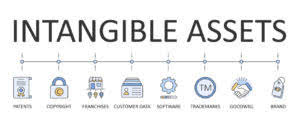
Some assets may have a salvage value of zero, indicating that they are expected to have no residual worth after being fully depreciated. Therefore, a portion of the Fund’s distribution may be a return of the money you originally invested and represent a return of capital to you for tax purposes. Any historical returns, expected returns, or probability projections may not reflect actual future performance.
How do you calculate an asset’s salvage value?

The fraud was perpetrated in an attempt to meet predetermined earnings targets. In 1998, the company restated its earnings by $1.7 billion – the largest restatement in history. Sometimes, an asset will have no salvage value at the end of its life, but the good news is that it can be Bookstime depreciated without one.
AccountingTools
- Consider a manufacturing company that purchases a piece of equipment for $100,000 with an expected life of 10 years.
- Salvage value represents the amount that an asset is expected to be worth after it has been fully depreciated or used up.
- All of our content is based on objective analysis, and the opinions are our own.
- In the case of damaged or totaled assets, the salvage value may be considered in insurance claims to determine the overall loss or value of the asset.
When calculating the depreciation expense of an asset, the expected amount of the salvage value is not included. In accounting, salvage bookkeeping value is the amount that is expected to be received at the end of a plant asset‘s useful life. Salvage value is sometimes referred to as disposal value, residual value, terminal value, or scrap value.

Ask a Financial Professional Any Question
- Salvage value refers to the estimated value of an asset at the end of its useful life.
- The majority of companies assume the residual value of an asset at the end of its useful life is zero, which maximizes the depreciation expense (and tax benefits).
- This is often heavily negotiated because, in industries like manufacturing, the provenance of their assets comprise a major part of their company’s top-line worth.
- While the company possesses a unique product, its success hinges on maintaining a competitive edge and capturing a substantial market share.
- For tax purposes, depreciation is an important measurement because it is frequently tax-deductible, and major corporations use it to the fullest extent each year when determining tax liability.
- The salvage value calculator evaluates the salvage value of an asset on the basis of the depreciation rate and the number of years.
Understanding salvage value aids in making informed investment and asset management decisions. It can influence whether to continue using an asset, upgrade it, or dispose of it. So, total depreciation of $45,000 spread across 15 years of useful life gives annual depreciation of $3,000 per year. 60% depreciation is reported over 6 years and salvage value is 40% of the initial cost of the car. Depreciation is an essential measurement because it is frequently tax-deductible. If the salvage value is greater than the book value then income added after deducting the tax, the value/ amount then left is called after-tax salvage value.
- Upon closer examination, it becomes evident that the startup operates in a fiercely competitive industry characterized by rapid technological advancements.
- The total amount to be depreciated would be $210,000 ($250,000 less $40,000).
- The company pays $250,000 for eight commuter vans it will use to deliver goods across town.
- Overall, the companies have to calculate the efficiency of the machine to maintain relevance in the market.
- The impact of the salvage (residual) value assumption on the annual depreciation of the asset is as follows.
Debt Refinancing: Principles, Types, and Financial Impacts

Instead, simply depreciate the entire cost of the fixed asset over its useful life. Any proceeds from the eventual disposition of the asset would then be recorded as a gain. Salvage value is the estimated what is salvage cost resale value of an asset at the end of its useful life. It is subtracted from the cost of a fixed asset to determine the amount of the asset cost that will be depreciated.

Leave a Reply